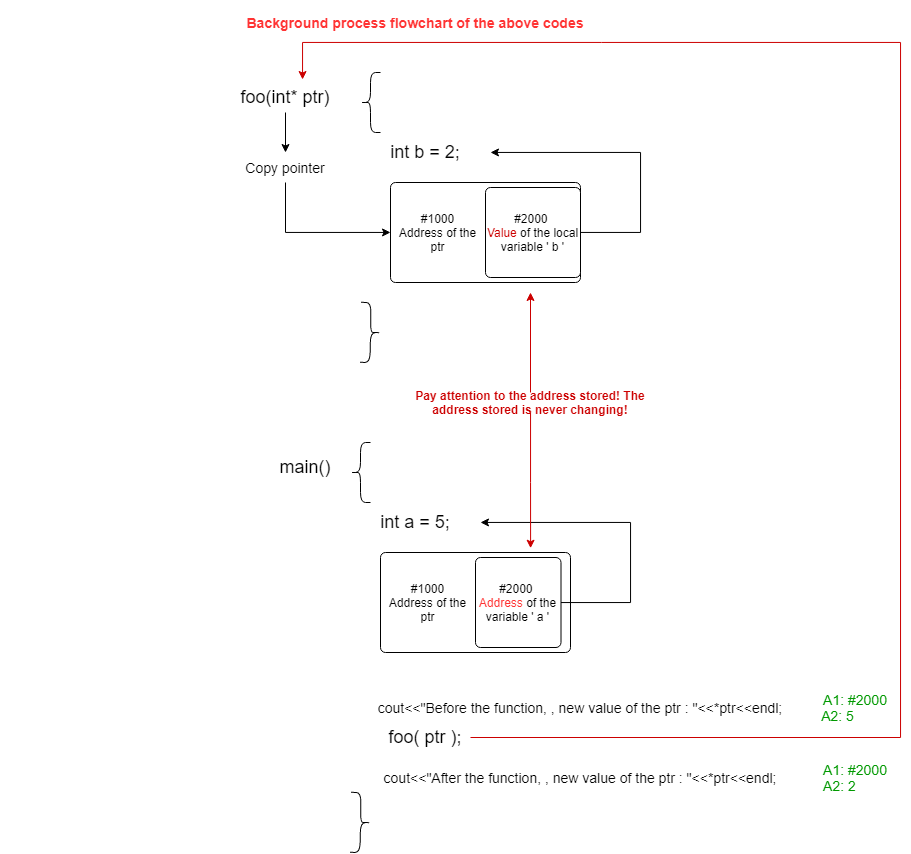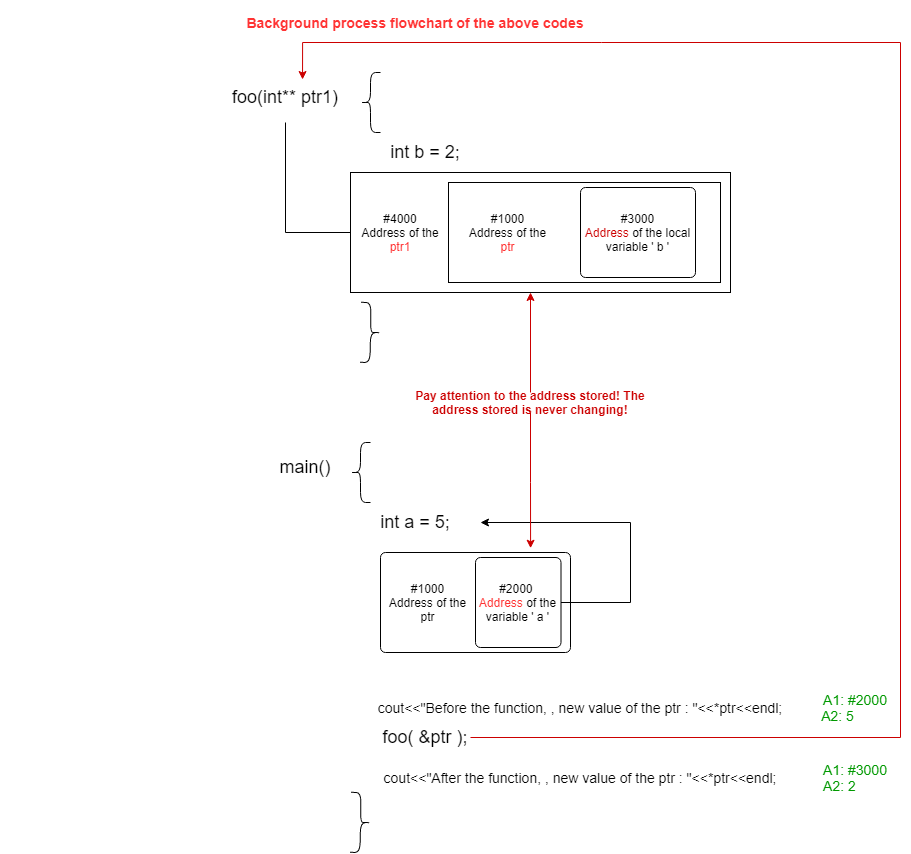Difference between passing pointer to pointer and address of pointer to any function
Last Updated :
01 Nov, 2022
In this article, the differences between passing “pointer to pointer” and “address of pointer” to a function. In C or C++ Programming Language, it is known that pointers hold the address of the variables or any memory location. If pointers are pointed to the memory location, it can be used to change the value of the variable.
As for functions, any pointer can be passed by itself, or by the address of the pointer. But If the memory location of the pointer is to be changed permanently out of the function, it must be captured with a reference or double-pointer within the function i.e., with the assumption any memory is created inside the local function.
Afterward, it is pointed to the pointer captured by the function without any reference or any double-pointer. In this situation, there is no change inside the main function because it was not captured by reference or a double-pointer inside the function definition.
Program 1:
C++
#include <iostream>
#include <stdlib.h>
using namespace std;
void foo(int* ptr)
{
int b = 2;
ptr = &b;
}
int main()
{
int a = 5;
int* ptr = &a;
cout << "Before the function ptr: "
<< *ptr << endl;
foo(ptr);
cout << "After the function ptr: "
<< *ptr << endl;
return 0;
}
|
Output:
Before the function ptr: 5
After the function ptr: 5
Explanation: The reason why there is no change in the output is that it is created a copy pointer for the function. So, the change in the address of the pointer does not reflect out of the function. References or double-pointer can be used for this.
Program 2:
C++
#include <iostream>
#include <stdlib.h>
using namespace std;
void foo(int* ptr)
{
int b = 2;
*ptr = b;
}
int main()
{
int a = 5;
int* ptr = &a;
cout << "Before the function, "
<< "new value of the ptr: "
<< *ptr << endl;
foo(ptr);
cout << "After the function, "
<< "new value of the ptr: "
<< *ptr << endl;
return 0;
}
|
Output:
Before the function, new value of the ptr: 5
After the function, new value of the ptr: 2
Explanation:

If it is wanted to replace the memory stored in ptr when the foo() function is complete, ptr must be captured with the reference or double-pointer in the foo() function.
Program 3:
C++
#include <iostream>
#include <stdlib.h>
using namespace std;
int b = 2;
void foo(int** ptr1) { *ptr1 = &b; }
int main()
{
int a = 5;
int* ptr = &a;
cout << "Before the function, "
<< "new value of the ptr: " << *ptr << endl;
foo(&ptr);
cout << "After the function, "
<< "new value of the ptr: " << *ptr << endl;
return 0;
}
|
Output
Before the function, new value of the ptr: 5
After the function, new value of the ptr: 2
Explanation:

Like Article
Suggest improvement
Share your thoughts in the comments
Please Login to comment...